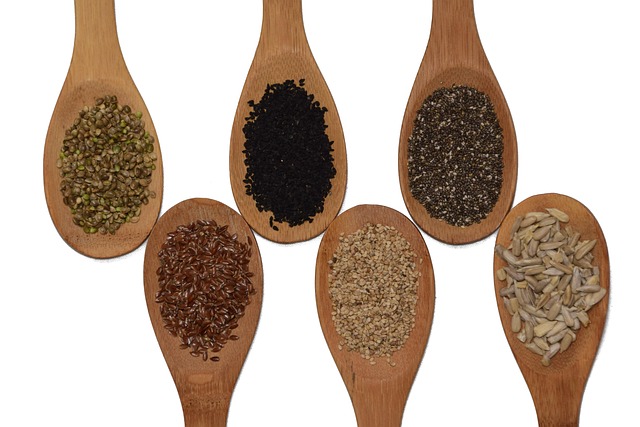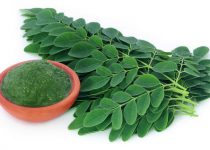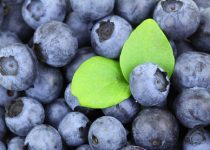
Chia Seeds vs. Hemp Seeds: Which Is Better for Protein and Fiber?
Is chia seed more beneficial than sunflower seed?
As an individual, you’ll end up questioning this a lot. Having too many choices does create confusion. When it comes to consuming seeds, you need to understand the pros and cons.
Not every seed will provide you with the right amount of fiber and protein. Undoubtedly, plant based eating not only improves your digestion and overall health. But here comes the real debate: is chia seed better than hemp seeds for better protein and fiber?
Let’s take a closer look at what makes each of these small-but-mighty seeds so special, and which one best fits your health goals.
A Glance At Chia and Hemp Seeds
-
Chia Seeds
Chia seeds come from the Salvia hispanica plant. It comes from native to Central and South America. Chia seeds have become a popular addition to smoothies, yogurt, and baked goods.
What sets chia apart is its absorption power.
These tiny seeds can soak up to 10 times their weight in water, forming a gel-like texture. This not only helps keep you full but also supports hydration and digestion.
A typical serving (about 2 tablespoons) of chia seeds provides:
- Calories: 140
- Protein: 5 grams
- Fiber: 10 grams
- Fat: 9 grams (mostly omega-3s)
- Carbohydrates: ~12 grams
They also improve calcium, magnesium, phosphorus, and antioxidants. Chia seeds are an impressive nutrient package in a very small form.
-
Hemp Seeds
Hemp seeds are best known as hemp hearts. It comes from the Cannabis sativa plant. However, these seeds won’t cause any psychoactive effects. They contain only trace amounts of THC (less than 0.3%), making them perfectly safe to eat.
Hemp seeds have a mild, nutty flavor. It has a soft texture that blends seamlessly into a variety of dishes. They’re popular in salads, smoothies, protein powders, and plant-based snacks.
A 3-tablespoon serving offers roughly:
- Calories: 170
- Protein: 10 grams
- Fiber: 1 gram
- Fat: 13 grams (omega-3 and omega-6 fats)
- Carbohydrates: 2 grams
Hemp seeds are also rich in magnesium, zinc, and iron. It also has gamma-linolenic acid (GLA), a fatty acid known for its anti-inflammatory properties.
Protein Comparison: The Power of Plant-Based Protein
Protein Quantity
When it comes to protein, hemp seeds outshine chia.
Approximately three tablespoons of hemp seeds consist of 10 grams of high-quality protein. It is nearly double what you’ll find in chia seeds (about 5 grams for the same amount).
If you’re strictly following a plant-based or vegetarian diet, hemp seeds are an excellent source of protein. Their high protein density makes them an excellent addition to meals when you need a nutritious boost without consuming animal based products.
Protein Quality
The quality of a protein depends on its amino acid profile.
Hemp seeds are a complete source of protein. They offer all nine essential amino acids, making them the best source of animal proteins such as eggs or dairy.
Chia seeds, while still a good source of plant-based protein, are not a complete protein. They lack sufficient amounts of lysine, one of the essential amino acids.
In simple terms:
- Hemp seeds = complete protein source
- Chia seeds = partial protein source, still beneficial
Protein Digestibility
Another key difference is how easily your body can digest and absorb the protein.
Hemp seeds have a soft outer shell and are easy to digest. Whereas chia seeds have a tougher exterior and higher fiber content, which can slightly reduce protein absorption if they’re not soaked or ground before eating.
Verdict: If you’re someone looking to speed up muscle recovery, adapt to an active lifestyle, or opting for high-protein diets, hemp seeds are clearly a better choice than chia in both protein quantity and quality.
Fiber Comparison: The Digestive Advantage
Fiber Quantity
Here’s where chia seeds overpower hemp seeds. Two tablespoons contain approximately 10 grams of dietary fiber, compared to just 1 gram in an equivalent serving of hemp seeds. That means chia delivers about 10 times more fiber per serving.
This high fiber content helps you feel fuller longer, stabilizes blood sugar, and supports regular digestion.
Types of Fiber
Chia seeds contain a balance of soluble and insoluble fiber:
- Soluble fiber forms a gel when mixed with liquid, slowing digestion and promoting satiety.
- Insoluble fiber adds bulk to stool and helps maintain regular bowel movements.
Health Benefits of Fiber
The fiber in chia seeds supports your body:
- Digestive health: Promotes regularity and a healthy gut.
- Heart health: Helps manage cholesterol levels.
- Weight management: Keeps you full, reduces unnecessary snacks cravings.
- Blood sugar control: Slows carbohydrate absorption, prevents mid day energy crashes.
Verdict: For fiber intake and digestive support, chia seeds are the clear winner.
Other Nutritional Highlights
Healthy Fats
Both seeds offer a rich profile of healthy fats, but their balance differs:
- Chia seeds are particularly high in alpha-linolenic acid (ALA), a type of plant-based omega-3 fatty acid.
- Hemp seeds contain a more balanced ratio of omega-3 to omega-6 fatty acids, which can help reduce inflammation and support brain health.
In short:
- Choose chia if you want omega-3s.
- Choose hemp for a balanced mix of healthy fats.
Micronutrients
Both seeds are rich in essential minerals, including:
- Magnesium: Supports muscle and nerve function.
- Iron: Crucial for red blood cell production.
- Zinc: Promotes immune health and skin repair.
- Phosphorus and calcium: Strengthen bones and teeth.
Hemp seeds provide slightly higher amounts of iron and zinc, while chia seeds deliver more calcium and antioxidants.
Calories and Satiety
Hemp seeds contain more protein, fat and are calorie-dense than other seeds. It is roughly 170 calories per 3 tablespoons. Chia seeds, at about 140 calories per 2 tablespoons, are lighter but offer more fiber for fullness.
If you’re managing calorie intake or aiming to feel full longer, chia may be a better fit. If you’re looking to increase calories and protein (for muscle gain or recovery), hemp makes more sense.
Which Should You Choose?
Choosing between chia and hemp seeds depends on your personal health goals:
| Goal | Best Choice | Why |
| Increase protein | Hemp seeds | Higher protein content and complete amino acid profile |
| Improve digestion | Chia seeds | High soluble and insoluble fiber |
| Support heart health | Chia seeds | Excellent source of omega-3 fatty acids |
| Build muscle | Hemp seeds | High-quality, easily digestible protein |
| Manage weight | Chia seeds | Fiber promotes fullness and stabilizes appetite |
| Boost overall nutrition | Both | Complementary nutrients and benefits |
Ultimately, the best option isn’t one or the other; it’s often both. Using chia and hemp seeds together can give you a more balanced nutrient profile. It combines the protein power of hemp with the fiber benefits of chia.
How to Add These Seeds to Your Diet?
Here comes the tricky question. You might think about how to include these seeds in your daily food. They can be the best staple to any food. Here’s how you can enjoy it:
Chia Seeds
- Stir into overnight oats or yogurt for a pudding-like texture.
- Add to smoothies for a natural thickener and fiber boost.
- Mix into baked goods like muffins or energy bars.
- Sprinkle over salads or cereal for added crunch.
- Make chia pudding with plant-based milk and fruit toppings.
Chia seeds have abundant benefits to the body. Whether you wish to add them into smoothies or consume them on its own, these tiny seeds are packed with nutrients and fiber. Explore more benefits of why chia seeds deserve to be staple in your diet.
For Hemp Seeds
- Sprinkle over salads, soups, or grain bowls for a nutty flavor.
- Blend into smoothies or protein shakes for a protein boost.
- Stir into oatmeal, yogurt, or pancake batter.
- Use as a topping for avocado toast or roasted vegetables.
- Mix into homemade granola or energy bites.
Pro Tip:
You can combine both seeds in your breakfast or snack and can give you a balanced blend of protein, fiber, and healthy fats.
The Bottom Line
When comparing chia seeds vs. hemp seeds, it’s clear that both have unique strengths:
- Hemp seeds stand out for their complete protein and digestibility, making them ideal for athletes, vegetarians, and anyone seeking a plant-based protein boost.
- Chia seeds have more fiber, promote satiety, digestion, and heart health.
Rather than choosing one, consider consuming both regularly. A tablespoon of each can effortlessly elevate your nutrient intake, supporting energy, digestion, and overall wellness.
In the end, it’s all about consuming “super food” that helps you get stronger and eat a healthier diet.


